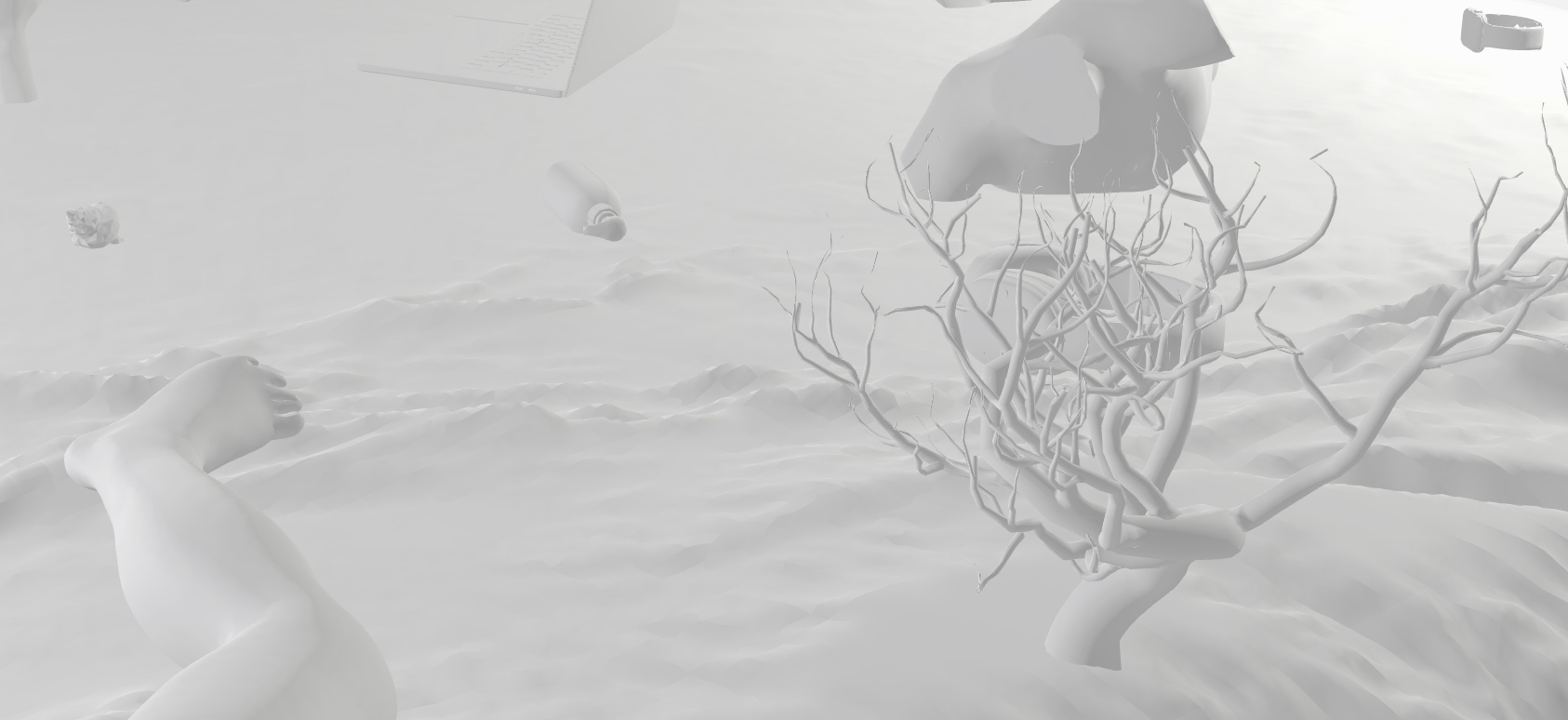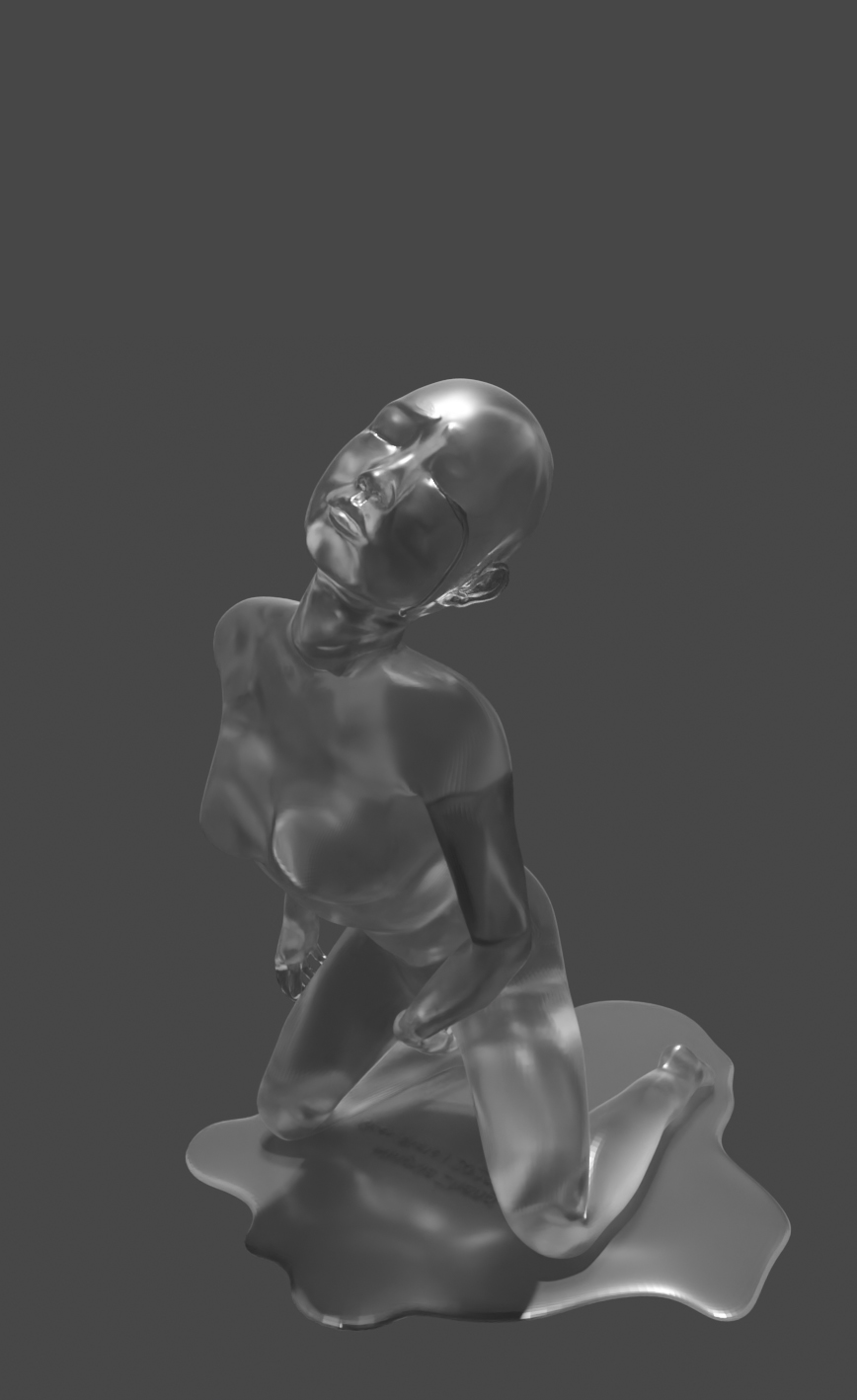NINGXIA ZHANG
Ningxia Zhang (张宁夏) is a Chinese-born artist and designer living and working in New York City. In her practice, she reconstructs her personal histories via performances and installations, where she weaves movements, objects and sounds from different time and space into new narratives. With a focus on digital media, such as web and virtual reality, her work encourages the engagement and participation of a wider audience. Ningxia graduated from Stanford University with a master degree in Computer Science with specialization in Human-Computer Interaction after her B. Eng. in Software Engineering from Fudan University and B.Sc. in Computer Science from University College Dublin.



Grey State (GS): How does your family’s history impact your personal identity?
Ningxia Zhang (NZ): The short answer is that it is still at the core of my identity.
I grew up in a small city in central China. My parents went through a lot of turmoil growing up in the 50s and 60s. I’m the 1st generation to have a decent standard of living, quality education and access to the outside world through the media. My father talked a lot about western liberal democracies, even if he had never traveled abroad. Before leaving China at 22, I felt a strong sense of belonging to Chinese culture and my hometown, while simultaneously longed for seeing the bigger world beyond it.
Since then I’ve traveled a lot and lived in the west for a decade. I have a complex relationship with my past that I’m constantly dealing with. But there’s no doubt my family’s history is still a core part of my identity. Unlike many of my friends with multicultural backgrounds, my identity as Chinese is unambiguous. It comes with knowing the enigmatic language, which relates to a way of thinking, a kind of poetry, and not to mention the thousands of years of history. It comes with the experience of poverty and living under authoritarian rule. It comes with the excruciating struggle in the fierce competition and ever present anxiety. It comes with an unbridgeable gap between me and my parents, which now physically manifests itself as the Pacific Ocean.
GS: What attracts you to the virtual space?
NZ: I got familiarized with the virtual space when I worked at Meta. I was attracted to it due to its possibilities to reduce the barriers of viewers accessing art, as well as of artists creating art.
The city I grew up in did not have art museums. If one doesn’t live in art capitals like New York or London, there aren’t a lot of opportunities to experience great art in person. In contemporary art, a lot of installations and sculptures actively engage in the space they occupy, and/or are site-specific. Virtual reality offers the opportunity for viewers to engage in these works regardless where they are.
Meanwhile, as an emerging artist, I don’t have the resources, such as large studio space, to construct large scale works. Usually only very established artists are able to do so. Virtual reality makes it possible for artists to experiment with space and scale at low cost and low risks, iterate on ideas quickly, and create experiences that might be hard to implement in real life.

GS: To what system(s) are you integral?
NZ: By definition, integral means “necessary to make a whole complete”. In a way, I feel any systems I belong to, such as the earth ecosystem, the human society, can exist and be complete without my existence, as an individual.
GS: As an emerging artist, have you faced any struggles or barriers in your practice? Were any of them due to your background?
NZ: Some of my barriers are practical. I still have a full-time job as a product designer in tech. I have limited time and energy to develop my practice. That’s probably the biggest barrier I have right now. As an artist who didn’t have formal art education, I also struggle to find and maintain a community of artists to share support, discover opportunities, and exchange critiques and ideas.
Some other barriers are psychological. It’s probably common for artists to deal with self doubt and its paralyzing effects. Growing up I was discouraged to pursue art, and was once told by my father that I was not creative enough to be an artist. Even if I disagree, that statement still comes to my mind every now and then, especially when I feel blocked or stuck with my art making.
GS: What is one thing that people can do to support art and artists?
NZ: This is not something I understand very well. I have many friends who are very much outside of the art world. During the 2021 NFT gold rush, a lot of them got suddenly interested, for obvious reasons. It’s always hard to ask people to support art, because they don’t feel the need to. Somehow I feel if we can really invite people to experience art and encourage them to develop their own thinking, they would see the value more. Many told me they are intimidated by contemporary art and concluded that they would never understand. With that attitude, they may miss out on some of the most unique and valuable experiences in life. So perhaps the one thing people can do is to go to see art and be open minded. From there hopefully they can see the value and support the people behind it.

GS: What does home and/or belonging mean to you? What does “community” entail?
NZ: I think home and belonging are more about the feelings than the actual place, group of people or institution. I can feel the sense of belonging to a set of memories. I can feel like home when I’m with a really close friend. It’s a feeling that we can develop and it is essential in constructing our meaning and identity.
To me, “community” means a group of people that bond over shared values and purposes. Resources, information and emotional support can be shared among the group for members to achieve their goals. (I don’t think cults or crime organizations are included here.) It might be a very idealistic view of “community”. I believe I had experience with such communities before and I’m looking for it now. The society we live in now centers around individuals and nuclear families. There’s a collective feeling of isolation and lack of belonging.
GS: Do you consider your art political?
NZ: Yes. In fact, I think any art is inherently political. I’m not well-versed in political philosophy by any means. From some shallow reading of Hannah Arendt, I think creating art is an act that creates something entirely new and makes expressions in a form of speech. Through sharing it publicly the art reveals the identity of the creator and adds to the public discourse/narrative. For an individual, the free choice of making such an expression in public space is political in my mind.
GS: How do you see yourself in your works?
NZ: My works are often very personal, reflecting on my own stories, incorporating images and forms of my own body, meditating on the idea of self etc. I’ve even received criticism from my friends that my art is too “self-centered”. I don’t necessarily think that’s a problem. My lived experience is the only experiential material I know from first hand and I feel most comfortable using it in my art. I’m generally very open to talk about myself and never try to represent a persona that’s not me. I do the same with my art. The viewers can see and experience me in my work. As many of the human experiences are shared, I don’t think the art based on my individual experience is limiting in terms of its representative and resonating powers.

GS: What do you, as an artist and an individual, represent?
NZ: I feel “represent” is maybe a strong word. I stand for my values of authenticity, curiosity, compassion and creativity. Perhaps I can say I, as an individual, represent a persistent attempt to find and actualize my meaning (in an existential sense).
GS: What is one thing that people can do to support art and artists?
NZ: This is not something I understand very well. I have many friends who are very much outside of the art world. During the 2021 NFT gold rush, a lot of them got suddenly interested, for obvious reasons. It’s always hard to ask people to support art, because they don’t feel the need to. Somehow I feel if we can really invite people to experience art and encourage them to develop their own thinking, they would see the value more. Many told me they are intimidated by contemporary art and concluded that they would never understand. With that attitude, they may miss out on some of the most unique and valuable experiences in life. So perhaps the one thing people can do is to go to see art and be open minded. From there hopefully they can see the value and support the people behind it.
GS: What does “grey state” mean to you?
NZ: To me, “grey state” means the intermediate state, the state in the middle. It could be where borders and definitions are not defined and thus many possibilities can be born. It could be the limbo, where uncertainties and anxieties are felt. I can also see it as an antithesis to the binary view of the world, which is an idea I find important in Zen Buddhism.
